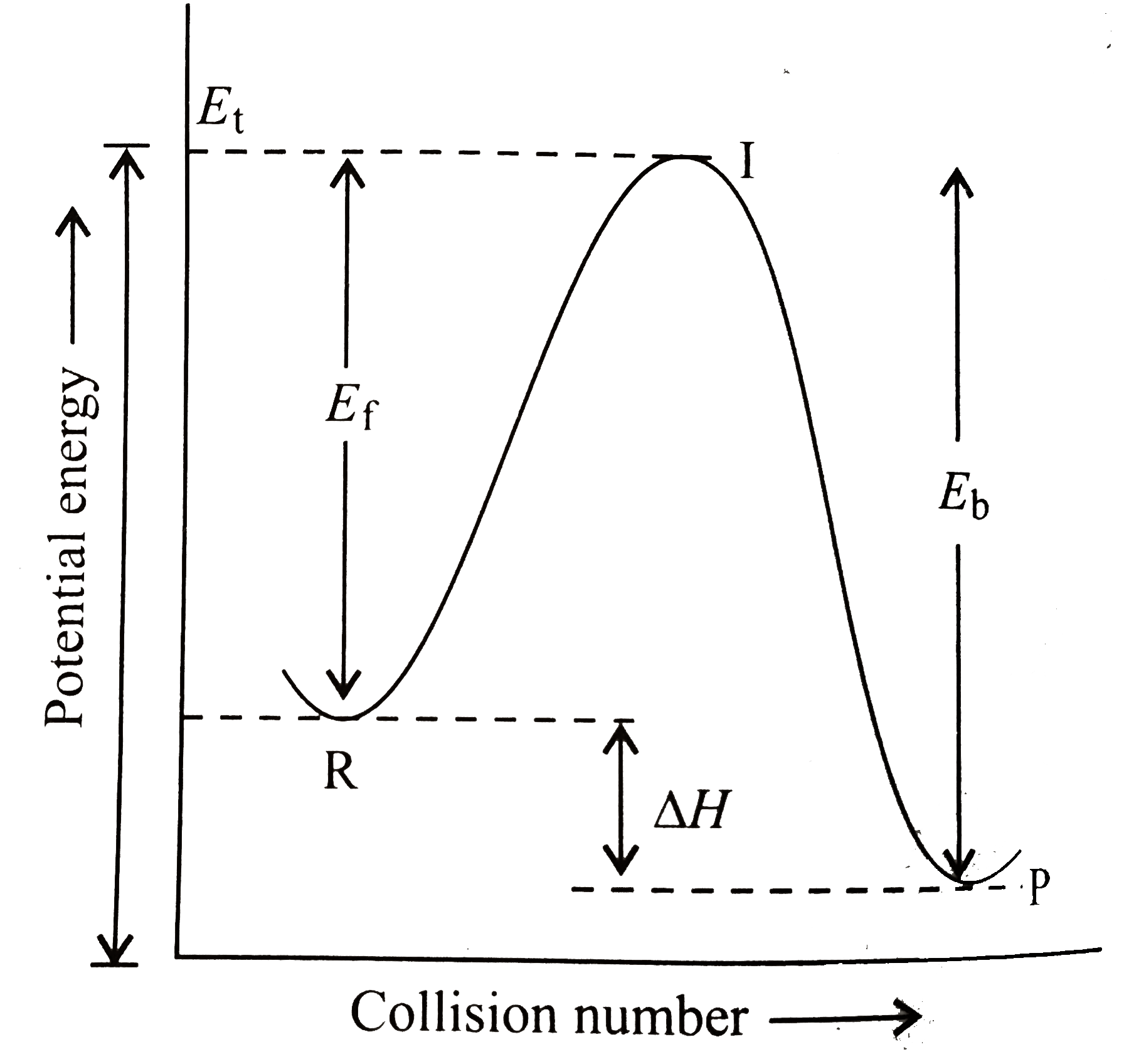Which of the following is definitely true, if for a reaction activation energies of forward and backward reactions are equal?
ΔH=0
ΔG=0
There is no catalyst
The order is zero
The correct Answer is:A
To solve the question, we need to analyze the relationship between the activation energies of the forward and backward reactions and the enthalpy change of the reaction.
1. Understand Activation Energy:
- Activation energy (Ea) is the minimum energy required for a chemical reaction to occur. Each reaction has a forward activation energy (Ea_forward) and a backward activation energy (Ea_backward).
2. Given Condition:
- The problem states that the activation energies of the forward and backward reactions are equal:
Eaforward=Eabackward
3. Enthalpy Change Relation:
- The enthalpy change (ΔH) for a reaction can be expressed in terms of the activation energies:
ΔH=Eaforward−Eabackward
4. Substituting the Given Condition:
- Since we know that Eaforward=Eabackward, we can substitute this into the enthalpy change equation:
ΔH=Eaforward−Eaforward=0
5. Conclusion:
- The enthalpy change (ΔH) for the reaction is zero, which indicates that there is no net heat change during the reaction. This means the reaction is thermodynamically neutral in terms of energy.
Final Answer:
- The statement that is definitely true if the activation energies of the forward and backward reactions are equal is:
- The enthalpy change for the reaction is 0.
- Activation energy (Ea) is the minimum energy required for a chemical reaction to occur. Each reaction has a forward activation energy (Ea_forward) and a backward activation energy (Ea_backward).
- The problem states that the activation energies of the forward and backward reactions are equal:
Eaforward=Eabackward
- The enthalpy change (ΔH) for a reaction can be expressed in terms of the activation energies:
ΔH=Eaforward−Eabackward
- Since we know that Eaforward=Eabackward, we can substitute this into the enthalpy change equation:
ΔH=Eaforward−Eaforward=0
- The enthalpy change (ΔH) for the reaction is zero, which indicates that there is no net heat change during the reaction. This means the reaction is thermodynamically neutral in terms of energy.
- The statement that is definitely true if the activation energies of the forward and backward reactions are equal is:
- The enthalpy change for the reaction is 0.
Similar Questions
Knowledge Check
- Question 1 - Select One
Which of the following reactions does not proceed in forward direction?
APh3C−H+CH3(CH2)3Na→Ph3Cna+CH3(CH2)2CH3B CCH3−O∣∣C−CH2−O∣∣C−CH3+C2H5өON⊕a→CH3−O∣∣C−CH=өO⊕Na∣C−CH3+C2H5OHD
CCH3−O∣∣C−CH2−O∣∣C−CH3+C2H5өON⊕a→CH3−O∣∣C−CH=өO⊕Na∣C−CH3+C2H5OHD
- Question 2 - Select One
Which of the following reactions does not proceed in forward direction?
ACH3CH2SH+NaOH→CH3CH2Sna+H2OBCH3CH2OH+CH3MgBr→CH3CH2OMgBr+CH4CCH3CH2OH+NaOH→CH3CH2Ona+H2ODCH3CH2OH+NaH→CH3CH2Ona+H2
Define activation energy of a reaction.
View SolutionDefine activation energy of a reaction.
View SolutionA colliison between reactant molecules must occur with a certain minimum energy before it is effective in yielding Product molecules. This minimum energy is called activation energy Ea Large the value of activation energy, smaller the value of rate constant k. Larger is the value of activation energy, greater is the effect of temperature rise on rate constant k.

Ef= Activation energy of forward reaction
Eb= Activation energy of backward reaction
ΔH=Ef−Eb
Ef= threshold energy
In a hypothetical reaction A→B, the activation energies for the forward and backward reactions are 15 and 9kJmol−1, respectively. The potential energy of A is 10kJmol−1. Which of the following is wrong?View SolutionWhich of the following reactions favour backward direction ?
View SolutionAssertion (A): Poistive catalyst lowers the activation energy of the reaction whereas the heat of reaction remains same.
Reason (R ): The heat of reaction is equal to the difference between activation energies for forward and backward reactions.View SolutionDefine the following :
(i) Order of reaction
(ii) Activation energy of reactionView Solution

